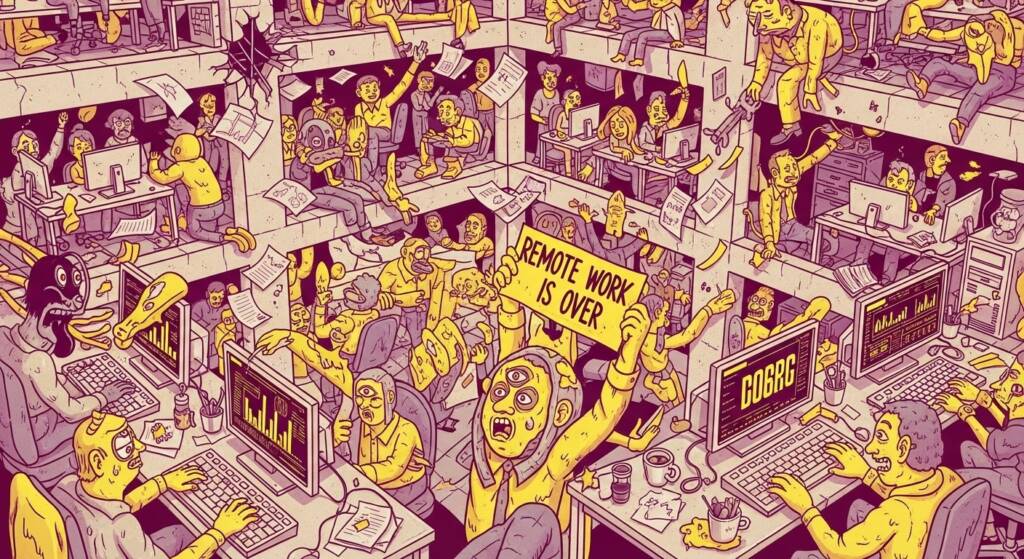The Impact of Losing Remote Work Flexibility for Women in Office Culture
As organizations shift back to traditional office settings, the potential loss of remote work flexibility presents significant challenges for women in the workplace. This transition can have far-reaching implications for work-life balance, career advancement, diversity, and overall job satisfaction.
Work-Life Balance Challenges
The flexibility of remote work has allowed many women to manage their personal and professional responsibilities more effectively. With the option to work from home, women have been able to:
Balancing Caregiving Responsibilities: Many women serve as primary caregivers for children or elderly family members. Remote work has provided the flexibility to attend to these responsibilities while maintaining their professional roles. The loss of this flexibility may force women to choose between their careers and family obligations, leading to increased stress and potential burnout.
Reduce Commute Stress: Eliminating the daily commute has saved time and energy, allowing women to allocate those resources to their work or personal lives. A return to the office means longer commutes, which can negatively impact their overall well-being and productivity.
Career Advancement Barriers
The return to a rigid office schedule can hinder women’s opportunities for career growth in several ways:
Limited Visibility: In traditional office settings, those who are physically present may have more opportunities to showcase their work and build relationships with leadership. Women who may have thrived in remote environments could find it challenging to gain visibility and recognition in a more competitive, in-person setting.
Networking Opportunities: Remote work has allowed women to connect with peers and mentors across geographical boundaries. The loss of this flexibility may limit their ability to network effectively, which is crucial for career advancement.
Increased Pressure to Conform: Women may feel pressured to conform to traditional office norms, which can stifle their individuality and unique contributions. This pressure can lead to a lack of confidence and hinder their professional growth.
Diversity and Inclusion Concerns
A mandatory return to the office can disproportionately affect women, particularly those from diverse backgrounds or those with caregiving responsibilities:
Exacerbation of Inequalities: Women, especially those from marginalized communities, may face additional challenges in balancing work and personal responsibilities. The loss of remote work flexibility can exacerbate existing inequalities in the workplace, making it harder for these women to succeed.
Retention of Diverse Talent: Companies that do not prioritize flexible work arrangements may struggle to retain diverse talent. Women who value work-life balance may seek opportunities elsewhere, leading to a less diverse workforce and a lack of varied perspectives in decision-making.
Retention and Recruitment Issues
Organizations that fail to offer flexible work options may face significant challenges in attracting and retaining top talent:
Changing Employee Expectations: The pandemic has shifted employee expectations regarding work arrangements. Many women now prioritize flexibility when considering job offers. Companies that fail to adapt to these expectations may struggle to recruit skilled professionals.
Talent Drain: As women seek more accommodating workplaces, organizations that revert to rigid office policies may experience a talent drain. This loss of skilled professionals can hinder innovation and growth within the company.
Mental Health Implications
The loss of remote work flexibility can have detrimental effects on mental health:
Increased Stress and Anxiety: The pressure to conform to traditional office hours and the challenges of balancing personal responsibilities can lead to heightened stress and anxiety levels among women.
Burnout: The inability to maintain a work-life balance effectively can lead to burnout, which has long-term consequences for both employees and organizations. Burnout can lead to decreased productivity, increased absenteeism, and higher turnover rates.
Conclusion
The potential loss of remote work flexibility poses significant challenges for women in the workplace. Organizations must recognize the importance of maintaining some level of flexibility in their work policies to support women’s career growth and well-being. By fostering an inclusive and accommodating work environment, companies can empower women to thrive in their careers while balancing their personal lives, ultimately leading to a more diverse and successful workforce.
Disclaimer:
The information provided in this blog is for informational purposes only and should not be considered professional advice. While we strive to provide accurate and up-to-date information, we make no guarantees about the completeness or reliability of the content. Any actions you take based on the information in this blog are at your own risk. Additionally, this blog may contain affiliate links, and we may earn a commission from purchases made through those links.




3 Comments
Vickie
Explore the tumultuous journey I faced during the Return-to-Office transition, which ultimately ended my 20-year career. Despite my consistent commitment, whether on-site or working remotely, my efforts went unrecognized. Dive into the chaos of this experience and the larger implications of corporate decisions shaped by billionaire interests. Please read my full story here, https://infostarbase.com/remote-work-story/.
Alice
Tech Billionaires Accused of Quietly Working to Implement “Corporate Dictatorship”. Read more at: https://www.yahoo.com/news/articles/tech-billionaires-accused-quietly-working-170409587.html
Alice
Remote Work or More Pay: What Tech Workers Value in One Chart by Zoe B. Cullen
Drawing from hundreds of real-world job offers, research finds that tech workers are willing to give up a quarter of their salary to avoid commuting.
Read more at: https://www.library.hbs.edu/working-knowledge/remote-work-or-more-pay-what-tech-workers-value-in-one-chart